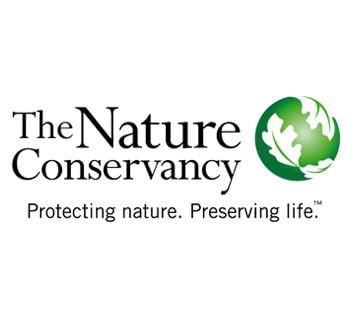The Nature Conservancy’s mission is to protect the lands and waters upon which all life depends. As a science-based organization, we create innovative, on-the-ground solutions to our world’s toughest challenges so that we can create a world in which people and nature thrive. We’re rooted in our Mission and guided by our Values, which includes a Commitment to Diversity and Respect for People, Communities, and Cultures. Whether it’s career development, flexible schedules, or a rewarding mission, there’s lots of reasons to love life #insideTNC. Want a better insight to TNC? Check out our TNC Talent playlist on YouTube or on Glassdoor.
Our goal is to cultivate an inclusive work environment so that all our colleagues around the globe feel a sense of belonging, and that their unique contributions to our mission are valued. We know we’ll only achieve our Mission by hiring and engaging a diverse workforce that reflects the communities in which we work. In addition to the requirements in our postings, we recognize that people come with talent and experiences outside of a job. Diversity of experience and skills combined with passion is a key to innovation and a culture of inclusion! Please apply – we’d love to hear from you. To quote myriad TNC staff members, “you’ll join for our mission, and you’ll stay for our people.”
Since establishing the Africa Program in 2007, The Nature Conservancy’s vision in Africa is to work towards fostering a sustainable future for people and nature, partnering with indigenous communities across 55 million acres on the continent. Our efforts are firmly rooted in people, leveraging scientific and technical expertise as we collaborate with governments and organizations to conserve and enhance Africa’s shared resources in the 9 countries we operate. TNC’s work in Africa transcends three key pillars: securing ownership rights to lands and resources for indigenous people, strengthening leadership and resource management and helping communities value nature through a holistic appreciation of its benefits while increasing revenue streams for conservation efforts and socio-economic development. Together with our partners, we are witnessing critical milestones in integrated land and fisheries management, ocean and source water protection, energy development and sustainable food production, working together and strengthening our resolve in tackling global challenges such as climate change, habitat and biodiversity loss that stands to adversely impact the nearly 1.4 billion people that share Africa. In South Africa TNC works with government, private sector, NGOs, and community stakeholders to restore priority catchments and conserve important landscapes
WHAT WE CAN ACHIEVE TOGETHER
Terms of Reference (ToR)
Identification of priority policy and institutional levers for multiplying the impacts of TNC programmes at national and subnational levels.
Background
TNC’s conservation projects and programmes are achieving tremendous impact on the ground in many countries across Africa. However, the impact of many of these initiatives will be multiplied several fold if their activities are complemented by policy and regulatory support of relevant subnational and national institutions.
This can be achieved through an effective policy and government relations strategy that is focused and targeted at priority institutions and policy processes that directly address the objectives of our programmes. Thus, new programmes would be able to incorporate these policy priorities ab initio and existing projects can be adjusted to benefit from appropriate policy incentives.
Purpose of the study
To undertake a review of the institutional and policy frameworks at national and sub-national level that are likely to enable or disable the multiplication of the impacts of TNC programmes on the ground. This will aim to identify gaps and suggest ways to address these gaps. The study will aim to determine what policies already exist and identify new and/or expanded policies that would be required to meet the ambitions of the respective country and TNC programmes. It would provide an understanding of the policies (including enabling conditions and governance) that are missing for implementation.
Objectives
The objectives of this study are to:
(3.1) Gain a deep familiarity and understanding of the policy and institutional contexts of TNC projects in the country with a view to identifying the policy levers that impinge on the scale-up and sustainability of such projects and programmes.
(3.2) Undertake the required reviews of existing biodiversity and climate change institutional and policy frameworks at national and subnational levels to identify key gaps that will inform and adapt recommended actions in development of regulations that will enable the scale-up and replication of such interventions.
(3.3) Consult the views of national and subnational level stakeholders on best practices and lessons learnt to inform recommendations regarding needed changes at national and subnational level with respect to institutional arrangements and policy processes that are of most relevance to TNC’s work;
(3.4) Propose specific areas of priority for TNC’s policy influence within the country’s institutional and policy framework that are practical and provide an effective enabling environment for enhanced achievement of TNC’s strategic objectives in the country.
WE’RE LOOKING FOR YOU
The intern will work in close collaboration with the TNC staff and other stakeholders and will report to the Policy and Government Relations Advisor. This is a short-term assignment that will take about 3 months to completion and the interns will be based in Kenya, Tanzania, Zambia, or South Africa. Candidates need to have rights to work in these specific countries as no travel or relocation assistance shall be provided.
The intern will undertake the following tasks at national and subnational levels:
- Undertake a desktop review, interviews, and field visits to gain an understanding of the projects and programmes of TNC in the country to identify the policy entry points.
- Undertake a desktop review of relevant legislation, policies, and institutional arrangements for the regulation of biodiversity and natural resources management and prepare a desktop review report that will clearly identify gaps and recommended actions
- Conduct relevant stakeholder consultation to verify findings from desktop review and recommended actions.
- Analyse the findings of the study and identify the key policies to be prioritized for policy influence to address the gaps in the existing legislations and policy frameworks.
- Produce a report on the results of the exercise.
WHAT YOU’LL BRING
- Bachelor’s degree in Conservation, Social Sciences, Policy & Advocacy, Political science, Law, Environmental management, Natural resources development, Wildlife conservation or any related field from a reputable institution
- Knowledge and experience in conducting research; Data collection, analysis, and presentation
- Multi-lingual skills and multi-cultural or cross-cultural experience appreciated.
- Excellent communication, interviewing and stakeholder engagement skills
- Ability to follow instructions from colleagues/coworkers/team members.
- Ability to work in a team environment.
- Computer literate
- Ability to travel
WHAT WE BRING
Since 1951, The Nature Conservancy has been doing work you can believe in protecting the lands and waters that all life depends on. Through grassroots action, TNC has grown to become one of the most effective and wide-reaching environmental organizations in the world. Thanks to more than 1 million members, over 400 scientists, and the dedicated efforts of our diverse staff, we impact conservation throughout the world!
We’re proud to offer a work-environment that is supportive of the health, wellbeing, and flexibility needs of the people we employ!
SALARY INFORMATION
Job Family: External Affairs
Internal Job Code: 950007
Salary Grade: 1
APPLY NOW
To apply for job ID 53152submit your materials online by using the Apply Now button at https://careers.nature.org/. Need help applying? Visit our recruitment page or contact applyhelp@tnc.org.
The Nature Conservancy is an Equal Opportunity Employer. Our commitment to diversity includes the recognition that our conservation mission is best advanced by the leadership and contributions of people of diverse backgrounds, beliefs and culture. Recruiting and mentoring staff to create an inclusive organization that reflects our global character is a priority and we encourage applicants from all cultures, races, colors, religions, sexes, national or regional origins, ages, disability status, sexual orientation, gender identity, military, protected veteran status or other status protected by law.
TNC is committed to offering accommodations for qualified individuals with disabilities and disabled veterans in our job application process. If you need assistance or an accommodation due to a disability, please send a note to applyhelp@tnc.org with Request for Accommodation in the subject line.
Where legally permissible, TNC requires all new employees to be fully vaccinated and willing to keep up to date with vaccines that protect against COVID-19. By accepting an offer of employment, you agree to comply with this requirement, unless you are entitled to a legally mandated exemption.
An attractive salary and benefits package is part of TNC’s value proposition to our employees. TNC strives to provide competitive pay and bases salaries on the geographic location of the role committing to being equitable across groups and providing hiring salary ranges when possible.
Since we support flexible and remote work for our employees, many positions have a flexible location within countries where we’re registered as a Non-government Organization and established as an employer. This may mean we’re unable to provide a hiring salary range in the posting for some of our positions. However, candidates invited to be part of our interview process will be provided their location specific range upon request.














